They come from various countries and were eyewitnesses to Vietnam's defining historical moments five decades ago. Returning for this significant occasion, the veteran journalists have embarked on a journey of reflection and reconnection.
In the lead-up to April 30, the group visited the Cu Chi Tunnels, the War Remnants Museum, and participated in a student exchange event with Vietnamese youth.
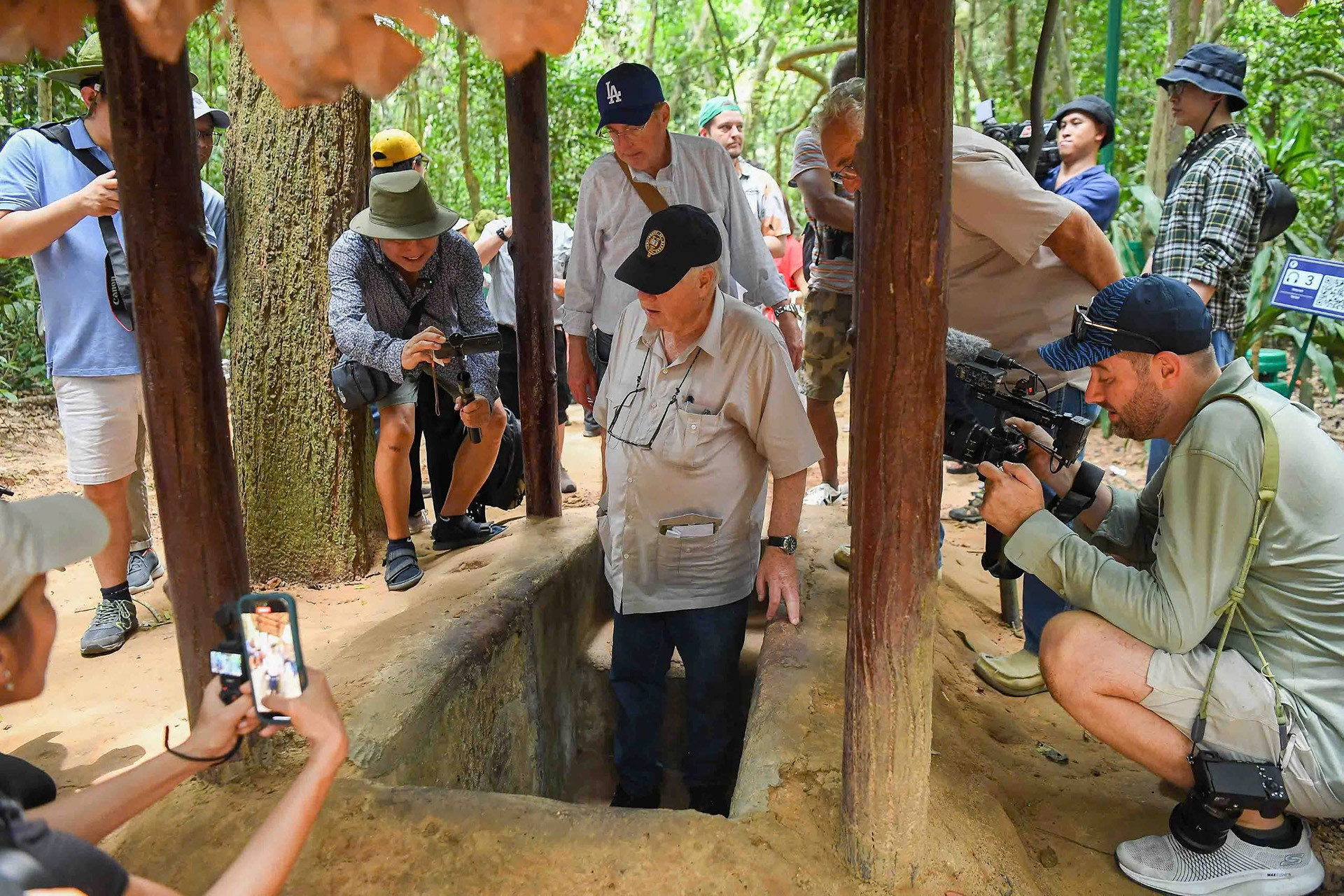
Former war correspondents visit the Cu Chi Tunnels. Photo: Minh Nhat
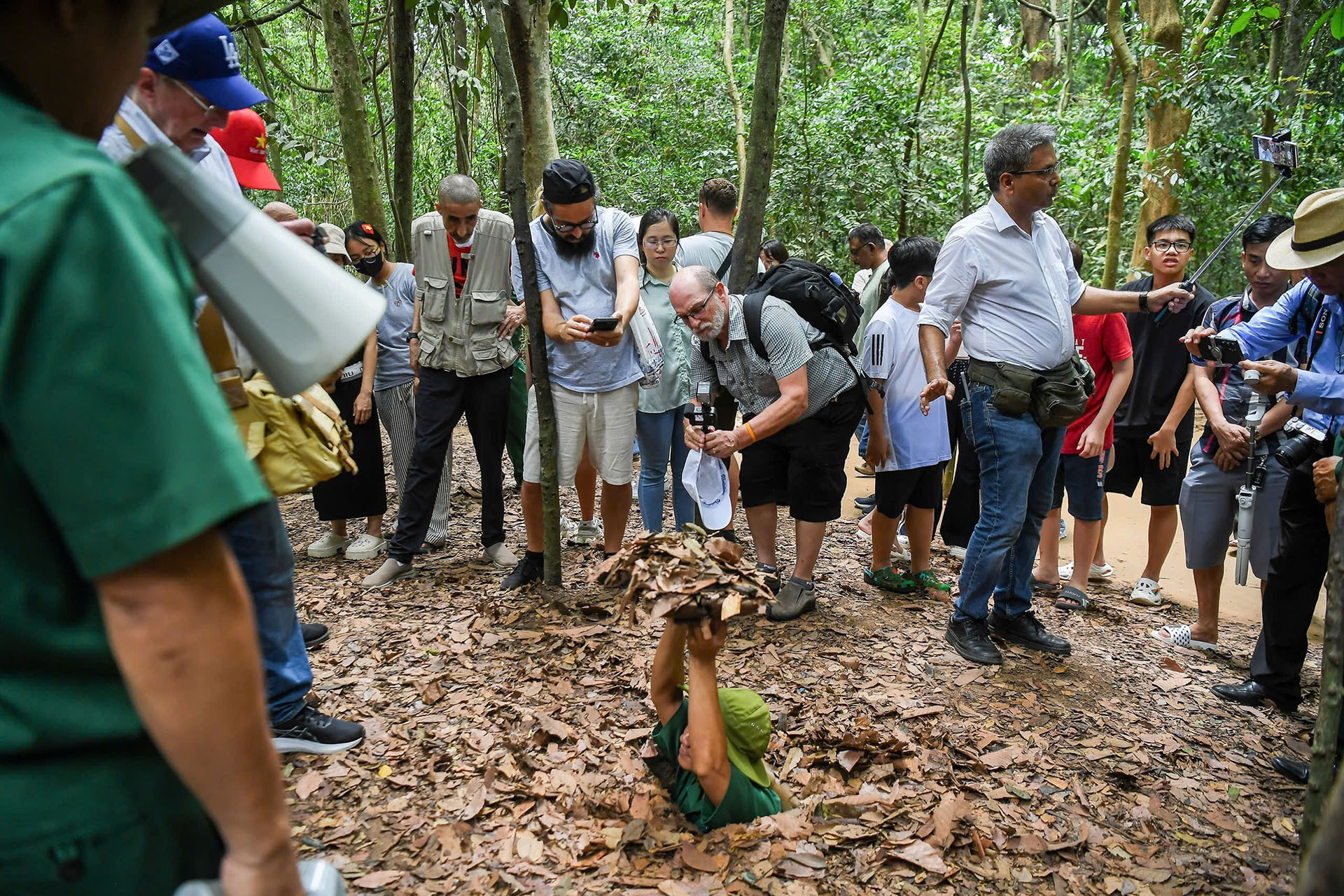
“My love for Vietnam has never faded”
Among them was Tom Fox, a former correspondent for The New York Times and TIME Magazine, who speaks fluent Vietnamese. Now over 80, Fox’s steps may be shaky, but his enthusiasm remains strong as he returns to iconic symbols of Vietnamese resilience.
He first came to Vietnam in 1966. At the time, instead of joining the US military, he volunteered to work in Tuy Hoa, Phu Yen Province, helping orphans and war-affected families. Traveling across the South, he witnessed firsthand the devastation caused by the war - experiences that led him to become a reporter.
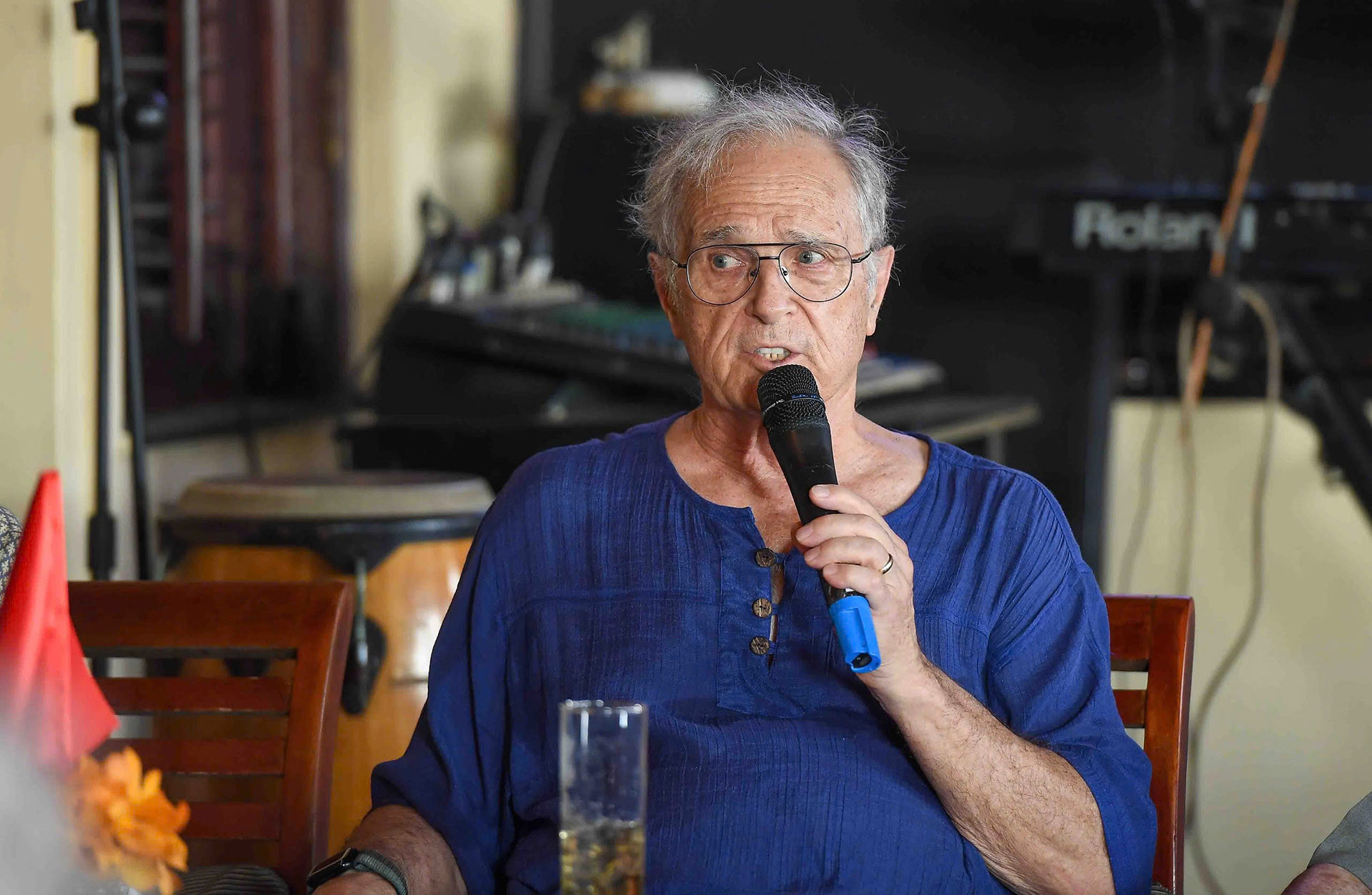
He learned Vietnamese, developed a taste for fish sauce, and in 1971, married a woman from Can Tho.
“I was so happy. We’ve been married for over 50 years and have two children and three grandchildren. My love for Vietnam has never faded,” he said.
Fox has read much of Vietnamese literature, especially The Tale of Kieu by Nguyen Du. Deeply connected to the people and the land, he returned to Vietnam as a war correspondent.
On this return visit, Fox said he saw “the vibrant energy of Vietnam’s youth and their love for themselves and each other.”
“I came back to strengthen my bond with Vietnam”

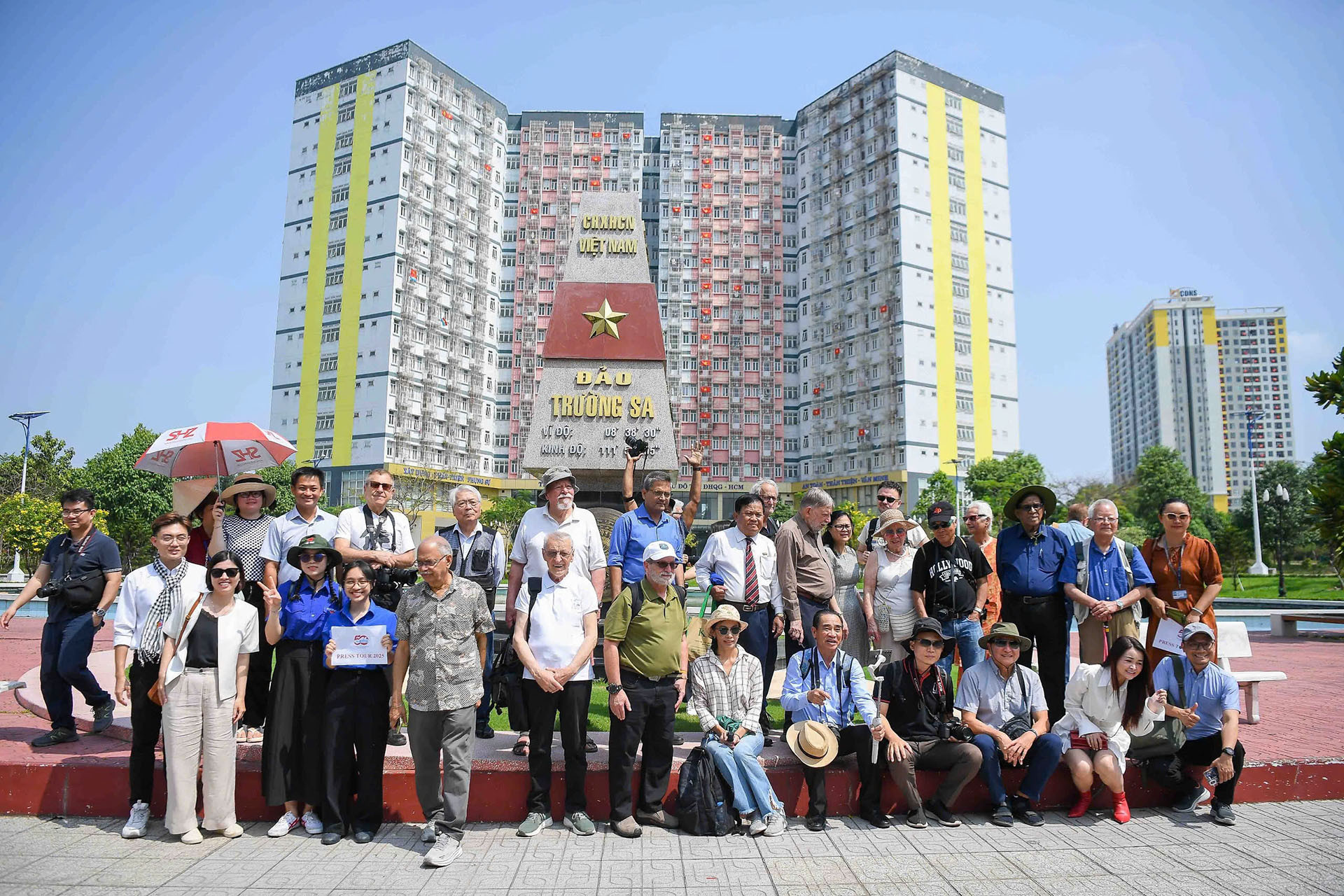
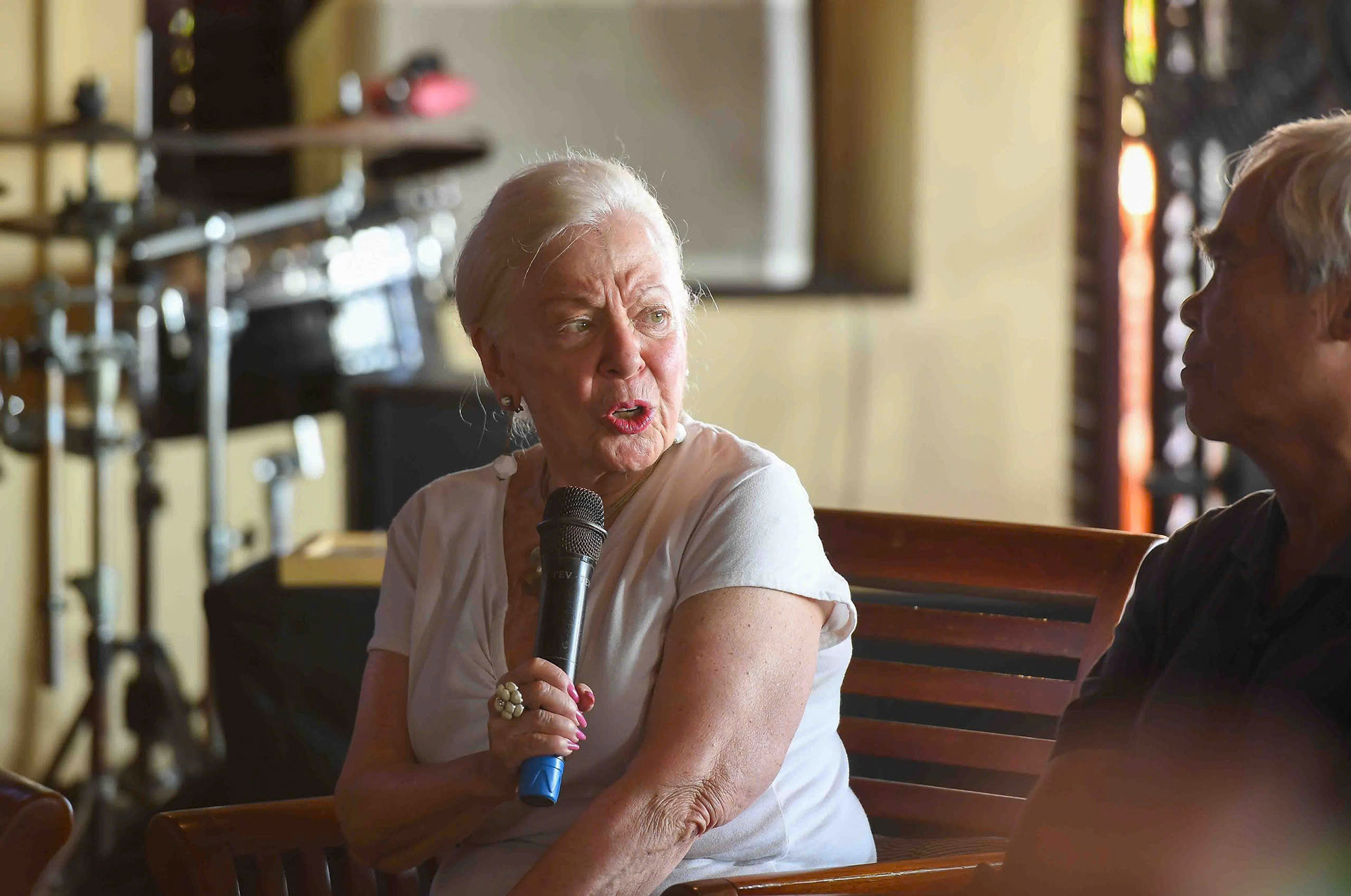
Edith Madelen Ledever, the only former war correspondent in the group still active in journalism, is currently Chief of the AP bureau at the United Nations.
She covered the US troop withdrawal from Vietnam in 1973 and was the only female war reporter in the country at the time. She returned in 1993 - exactly 20 years later - and was deeply moved by the warmth of the Vietnamese people, who held no resentment toward Americans.
Since then, she has returned many times to attend the 35th, 40th, and now 50th reunification anniversaries.
Previously familiar with the name Saigon, she now embraces Ho Chi Minh City, impressed by its rapid growth. Yet, what strikes her most is the openness and kindness of its people.
“Back then I reported on war. This time, I traveled the length of Vietnam to feel the peace. We all have deep affection for this country. We’re here to strengthen our connection,” she shared.
Fifty years after the war, she says Vietnam has changed immensely - and she hopes to return in another five years to see a more dynamic, thriving, and successful nation.
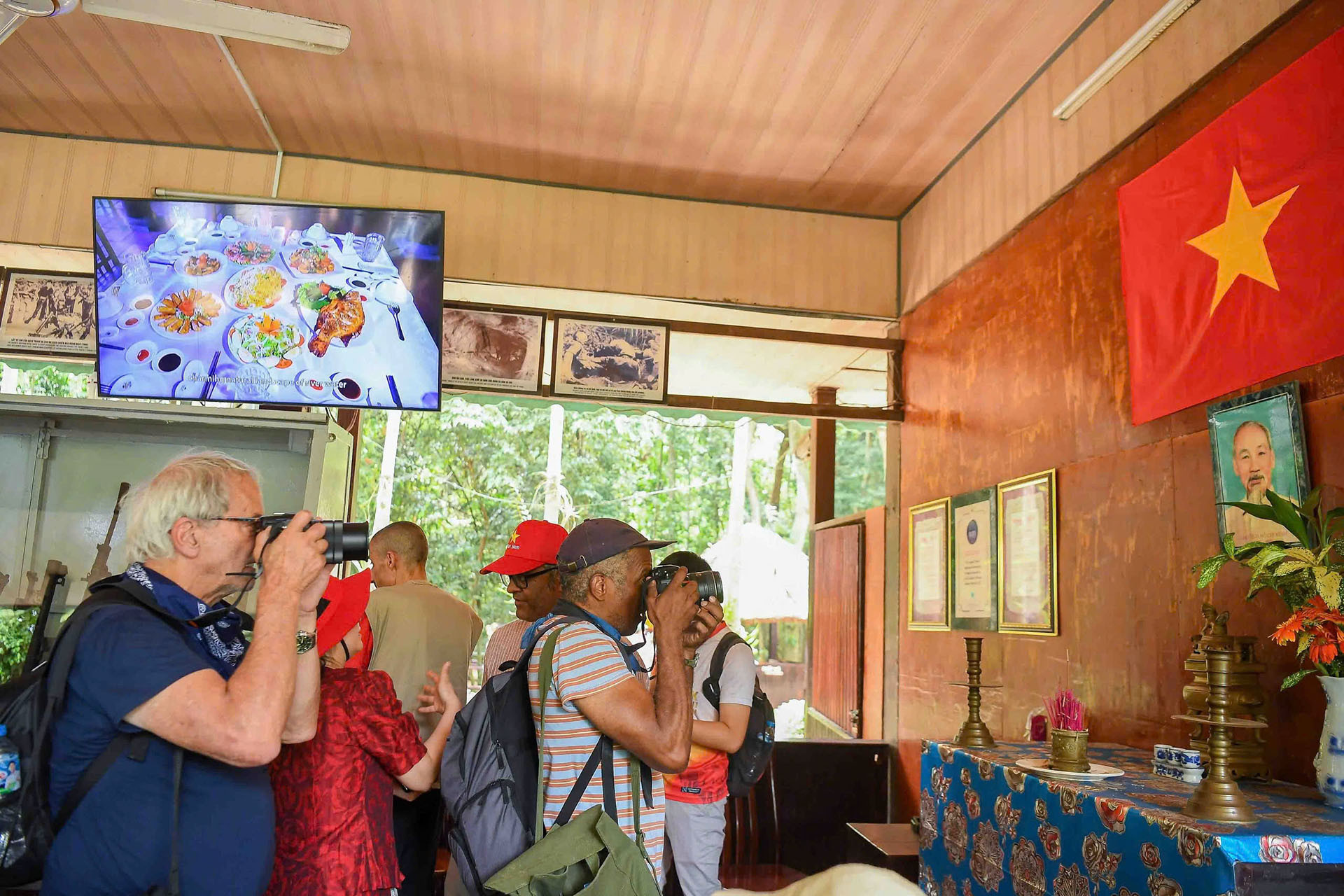
“I ignored warnings to leave Saigon”
Nayan Chanda, an Indian journalist formerly with Far Eastern Economic Review, recalled a memorable breakfast shared with a liberation soldier in his own home shortly after April 30, 1975.
He described how the soldier entered his house, likely searching for remnants of the former regime. But after Chanda showed him an article he had written about Lenin, the two sat down for a peaceful breakfast together.
“While most foreign journalists evacuated, I stayed to witness a historic turning point for the Vietnamese people,” Chanda said.

Thanks to that decision, he captured the rare quietness of Saigon’s streets on the morning of May 1, 1975 - a moment forever etched in his memory.
In a recent reception hosted by Ho Chi Minh City, Acting Director of the HCMC Department of Foreign Affairs Pham Duy Diem emphasized the vital role of foreign correspondents in helping the world understand the justice of Vietnam’s cause - especially those who reported from the Southern battlefields during the war’s fiercest years.
“Your presence here is a testament to the enduring affection and bond you have for Vietnam and for Ho Chi Minh City in particular,” he said.
Fifty years after reunification, Ho Chi Minh City continues to share its message with the world - a message of peace, growth, integration, dynamism, and compassion.
Tran Thuong